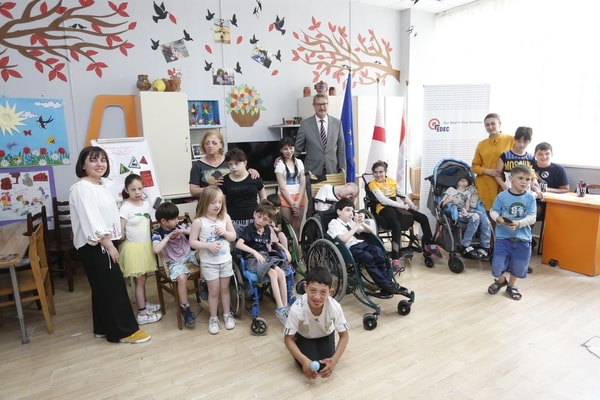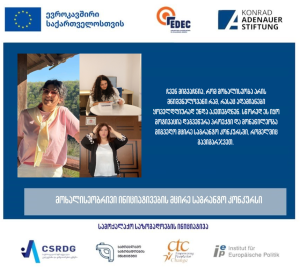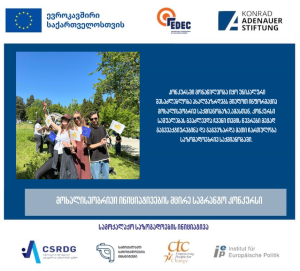EU Ambassador to Georgia Carl Hartzell
visited the Kutaisi Day Care Center for Children with Disabilities “Magic
World.” He was accompanied by Dimitrije Todorovic, Country Director of
Arbeiter-Samariter-Bund Georgia (ASB Georgia).
The guests were welcomed by Lika Kiladze,
Chairperson of the Educational Development and Employment Center (EDEC), and
Sophio Kupatadze, Coordinator of the Day Care Centers Program. Teachers,
assistants and the psychologist working at the facility were also happy to greet
the visitors.
Throughout the visit, the Ambassador became
familiar with the beneficiaries’ daily activities such as group and individual
work in the sensory rehabilitation room, with the general setup and environment
of the center, as well as with its history and current situation.
The Kutaisi Day Care Center “Magic
World” is working already for over 10 years. Currently, it provides
services for up to 30 beneficiaries aged 6 to 18 years. The facility is partially
funded by the state’s voucher system as part of the program for social
rehabilitation and child care.
Considering the actual and constant needs
of the beneficiaries, EDEC is permanently working on obtaining additional funding
and support of donors to strengthen the daycare center. In 2016, as part of an
EU-supported ASB Georgia project an adaptive minivan could be purchased to provide
regular, safe, and comfortable transportation of the beneficiaries.
Afterward, EU Ambassador Carl Hartzell
also got to know the social enterprise “Peacock” which is operating
within the rooms of the daycare center. The head of the enterprise, Peride
Loria showed the guests the variety of hand-made products, such as greeting
cards and souvenirs, and told about Peacock’s history.
As of now, there are 10 people with
disabilities employed at the enterprise, which take care of corporate as well
as individual orders. Within the framework of various EU-funded programs, members
of the social enterprise participated in a number of training and projects to
strengthen its institutional capacities.




